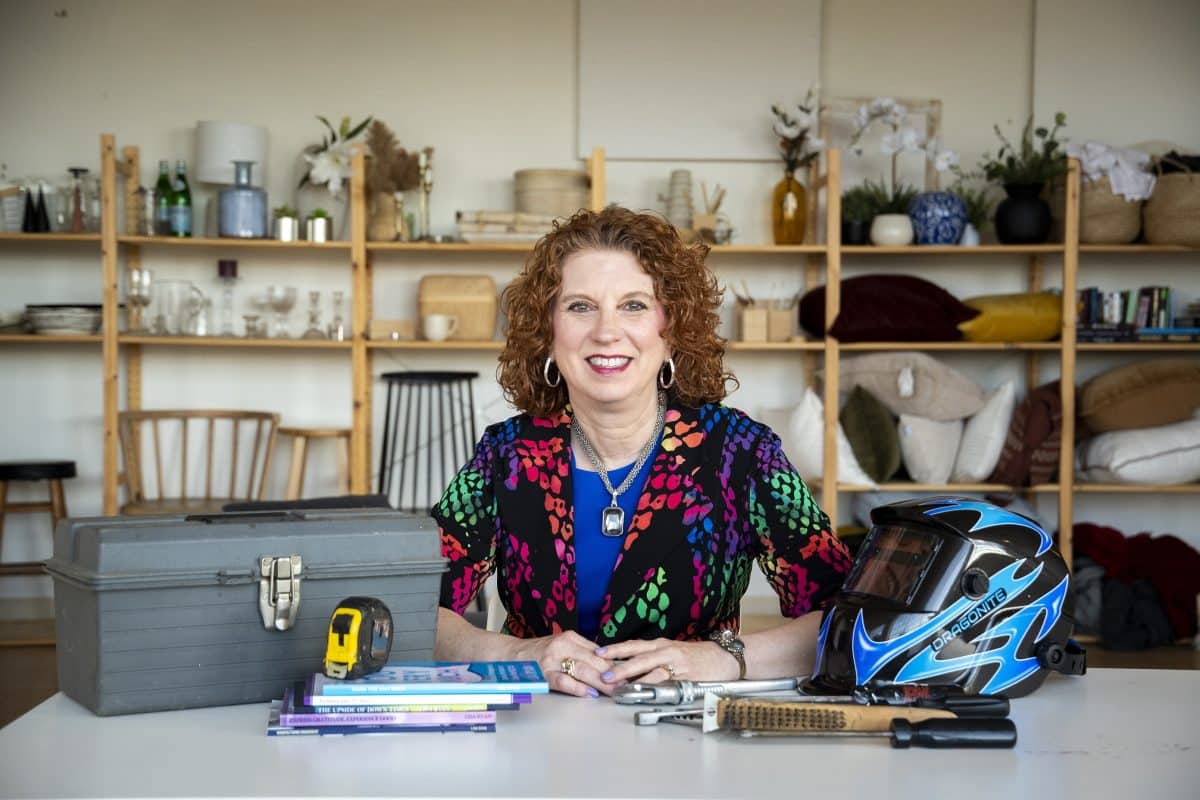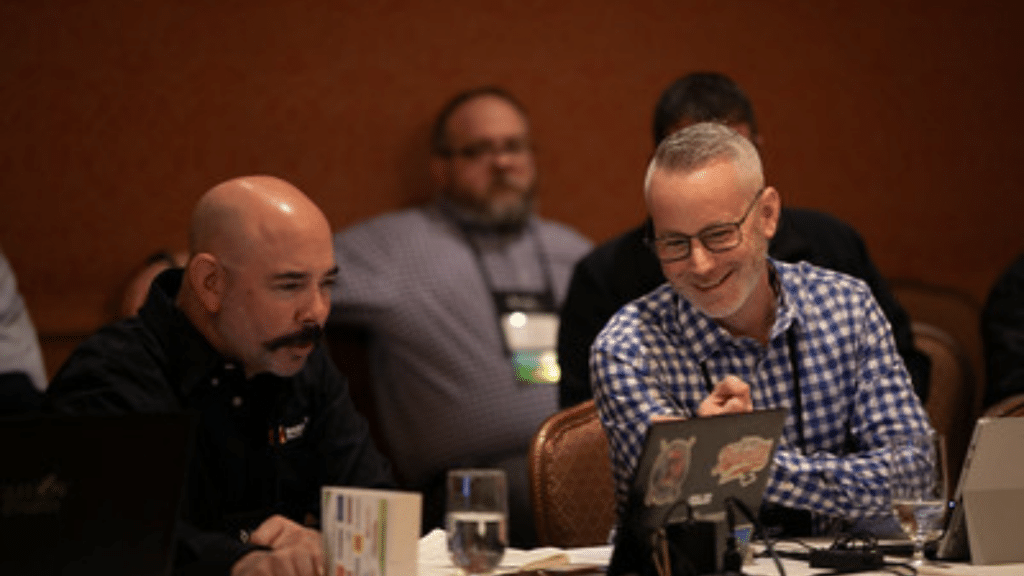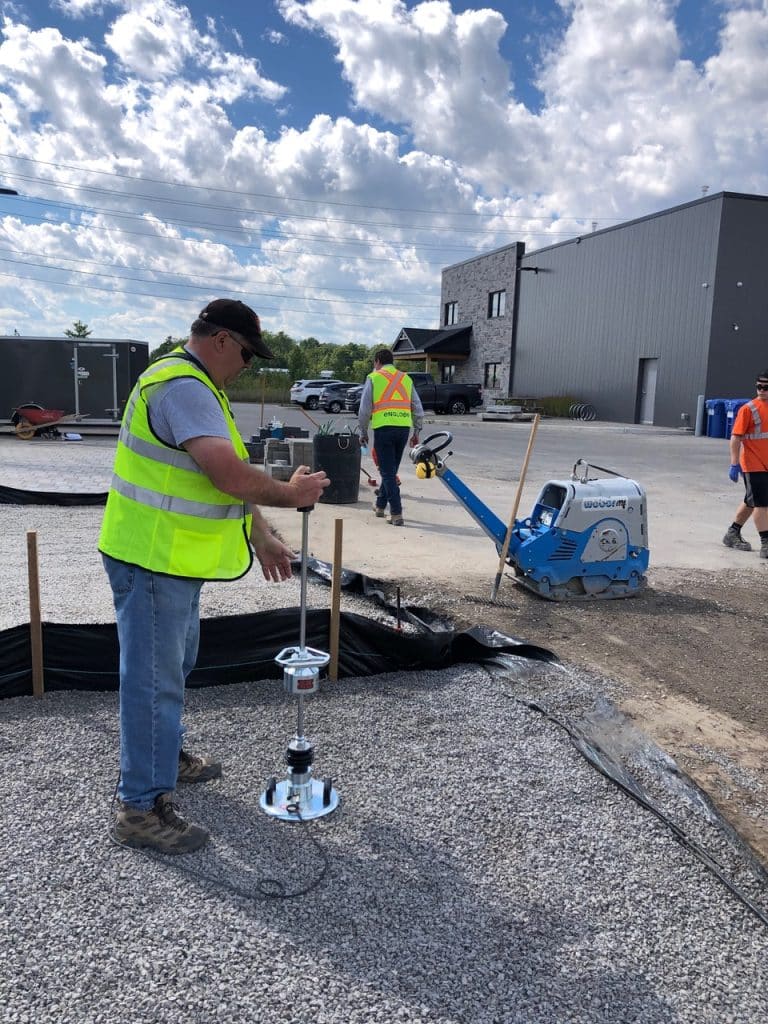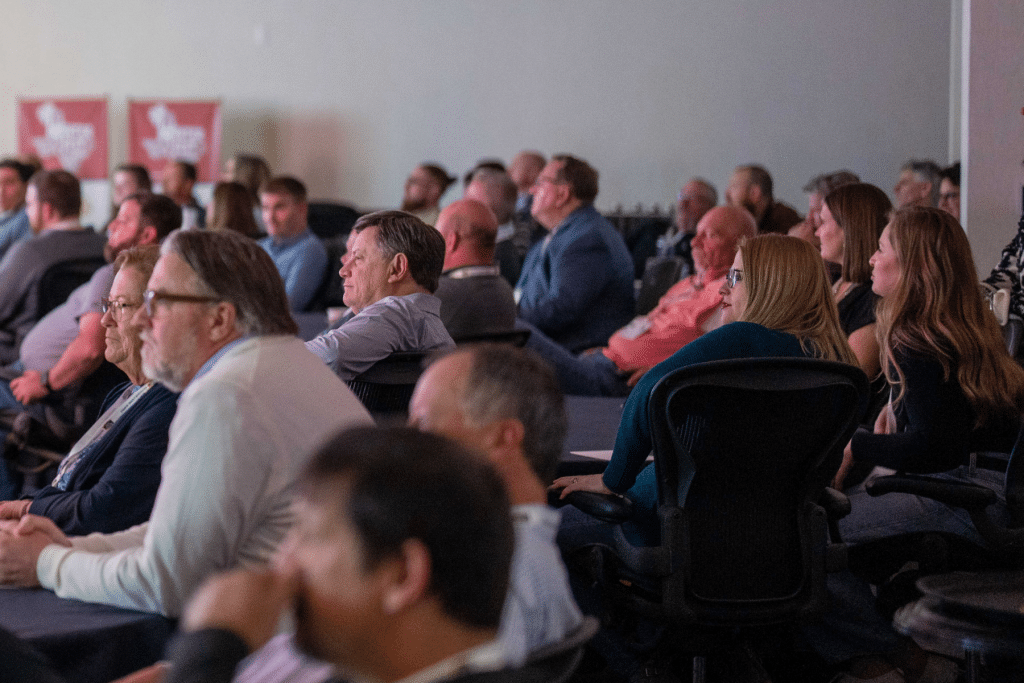Lisa Ryan didn’t set out to be a culture consultant, Certified Speaking Professional (CSP), or keynote speaker. She started in data entry. No college degree, no plan, just a job. But one unexpected invitation changed everything.
“My boss signed me up for a Dale Carnegie class,” Ryan said. “That moment cracked something open. It wasn’t just learning to speak. It was learning to lead.”
It sparked a 14-year journey of night school and full-time work, eventually making her the first in her family to earn a college degree, and finishing that path with an MBA.
Lessons in Leadership
But Ryan’s most valuable lessons didn’t come from the classroom; they came from the shop floor.
“I didn’t learn how to sell electrical cord and cable in college,” she said. “What I learned in the field was how to walk into a grimy maintenance department where no one wanted to see a salesperson, and still find a way to connect.”
She learned how to earn trust in rooms where respect wasn’t handed out easily, especially to someone who didn’t look like everyone else.
“I figured out pretty quickly that it wasn’t about features and benefits. It was about listening first. Showing up consistently. Asking smart questions. And proving that I wasn’t just there to hit quota, I was there to solve a real problem.”
Some days, she got the order. Other days, she got told off. But she kept showing up.
“That’s what sales taught me. Grit. Presence. The ability to bounce back without taking it personally. And the power of relationships over transactions,” Ryan said.
Then she spent seven years in sales to the welding industry.
“I walked through steel mills. Went down into salt mines. Sold to construction crews laying asphalt in the heat,” she says. “That’s where I really learned how leadership shows up – or doesn’t.”
She saw how one leader could inspire a crew to go above and beyond, while another could destroy morale with one careless decision. She watched great employees leave because no one acknowledged them, and average ones stay because no one held them accountable.
“Those experiences gave me a front-row seat to the gap between what leaders say and what their people actually feel,” Ryan says. “That gap is where culture lives. And where companies either win or lose their workforce.”
When Good Culture Goes Bad
One of Ryan’s sharpest lessons in leadership came from a single, avoidable decision.
At the time, she was thriving in her sales territory. Results were strong, relationships were solid, and she knew the landscape. When her manager floated the idea of bringing in a new hire to work her territory, she spoke up.
“I told him flat-out it wasn’t a good idea,” Ryan said. “I didn’t want some rookie stepping in where I’d already done the heavy lifting.”
He did it anyway.
“I was so mad I dusted off my resume, just to see what was out there,” she says. “And I found that with 17 years of sales experience and an MBA, I was pretty marketable.”
She didn’t just leave the company. She left the industry.
“That’s what happens when leaders stop listening. Your best people are telling you what they need, not because they’re difficult, but because they want to stay. And when you ignore that? They won’t,” she said.
Ryan transitioned into medical sales, where she brought her education mindset into every client conversation, teaching more than 500 continuing ed programs on topics ranging from hand hygiene and double-gloving techniques to occupational asthma.
“I learned how to make boring stuff interesting,” she said. “That skill still serves me on stage every day.”
Ryan’s defining moment came on October 12, 2010 – a date seared into her memory – when Ryan and 11 colleagues received the news via impersonal conference call that their positions were eliminated.
“That day didn’t break me. It gave me my freedom,” Ryan said. “I decided no company was ever going to control my future again.”
She launched her business the next day.
Finding Her Calling
She called her speaking business “Grategy.” A gratitude strategy designed for real workplaces. It’s not the Pinterest version of appreciation, but a blueprint for leaders who want results.
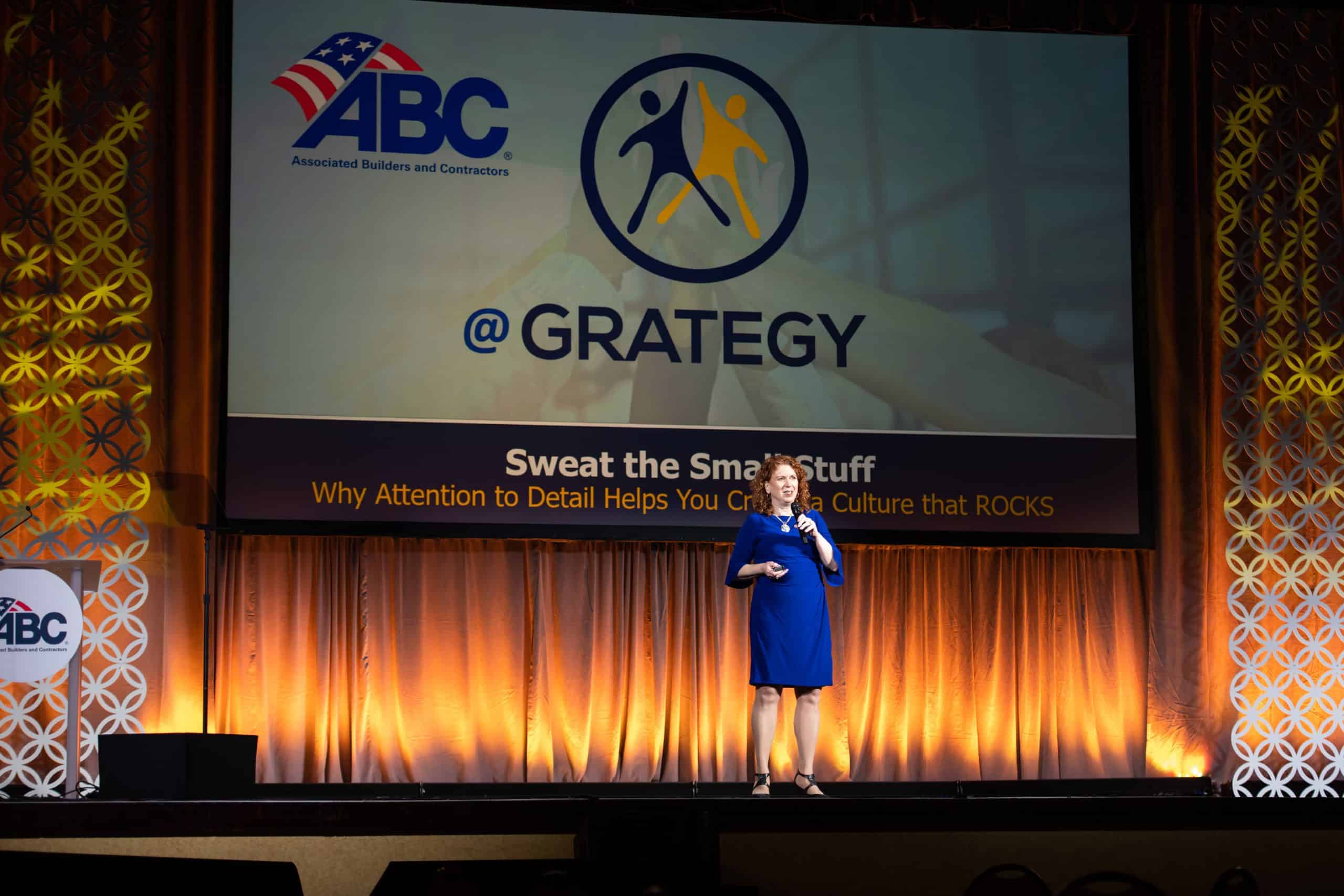
“In 2010, no one was paying for gratitude,” Ryan says. “I didn’t change the message. I changed the title.”
She framed her talks around employee engagement and retention, translating neuroscience and human behavior into practical culture shifts. Her clients? Manufacturing plants. Construction firms. Utilities. Associations where results matter more than buzzwords.
Now, 15 years later, the world’s caught up.
“Gratitude went from fluffy to foundational,” she says. “Organizations are finally seeing what happens when you lead with appreciation and back it with action.”
What to Expect at Hardscape North America
When Ryan takes the stage at the 2025 Hardscape North America (HNA) this October, she will share her signature framework: the Six Gears of Grategy®, a human-centered, leadership-driven approach to building a workplace people want to stay in.
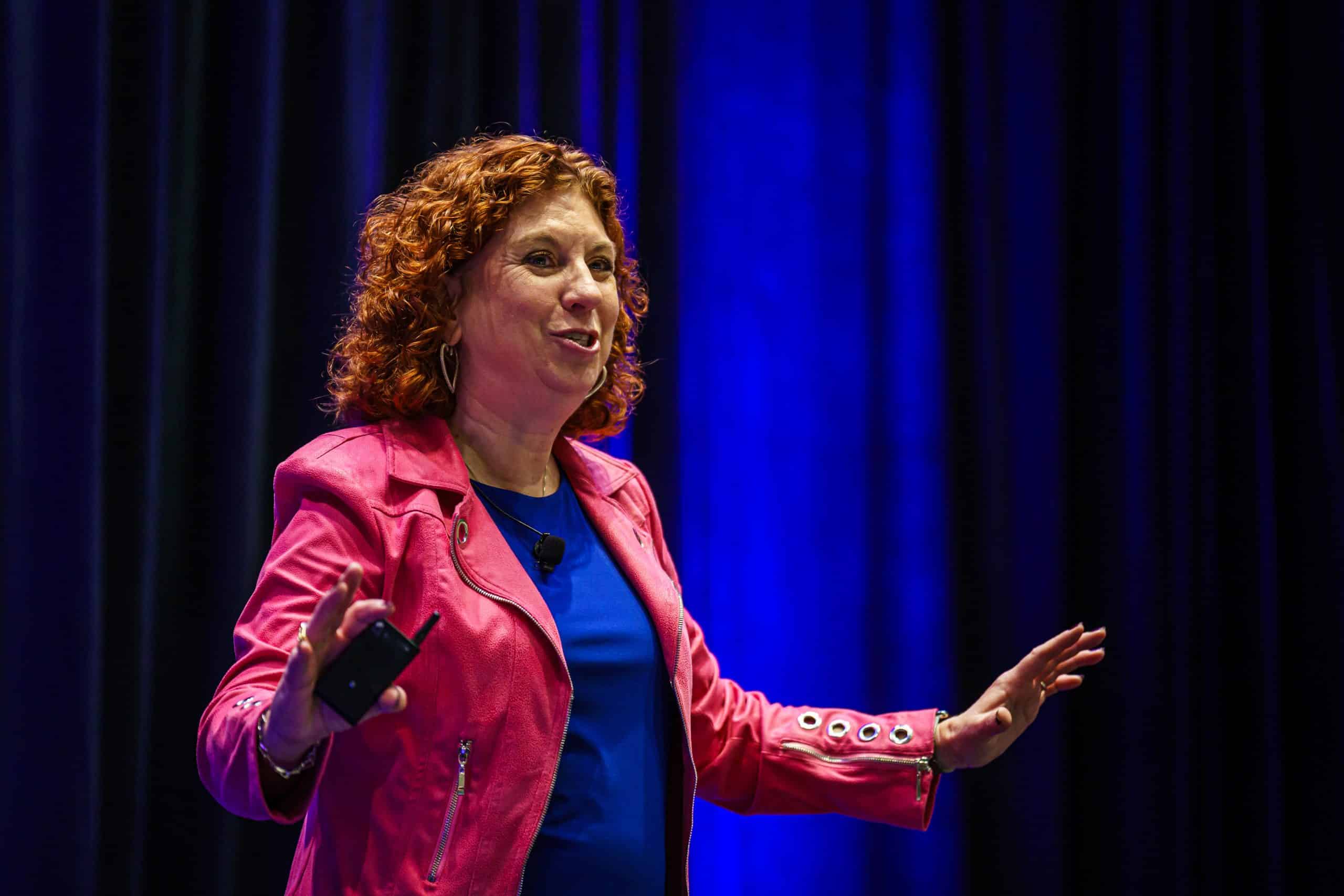
The gears include:
- Attitude – The foundation. Are you open to how the workforce has changed—or still wishing for the good old days?
- Appreciation – Gratitude isn’t soft. It’s strategic. And it’s backed by science.
- Access – People need access to training, tools, and leadership to thrive.
- Applause – Don’t wait for milestones. Celebrate what’s working.
- Acts of Service – Tie the job to purpose. Why does your work matter?
- Accountability – Culture doesn’t change from the stage. It changes in the trenches.
“Your culture didn’t happen by accident. But it won’t fix itself, either,” Ryan says. “You want to keep your best people? Show them they matter. And mean it.”
Attendees will walk away with real tools, fresh ideas, and the power of peer insight.
“I don’t do one-way keynotes. I tap into the wisdom in the room. You already know what works: I help you name it, claim it, and scale it,” Ryan said.
Advice for Aspiring Hardscapers
Ryan’s message isn’t just for owners and managers. She speaks to anyone who’s ever been overlooked, underappreciated, or underestimated.
“It doesn’t matter if you’re leading a crew or laying pavers, you set the tone,” she says. “You can make someone’s day better or worse. That’s culture.”
She encourages jobseekers to trust their instincts.
“You can feel the vibe of a place the second you walk in. Are people heads down, avoiding eye contact? Or do they look like they actually want to be there?”
She’s also a champion for what makes hardscaping beautiful.
“This is precision work. It’s craftsmanship. It’s art. And there’s nothing like seeing what you built, right there in the ground. That kind of pride? It’s powerful. And it’s culture gold, if you know how to mine it.”
The Common Thread
Across her varied career, Ryan has found that the common thread across all industries always goes back to gratitude and making people feel valued.
She believes deeply that gratitude is the gateway to retention, to leadership, and to building a company where people want to belong.
“You can train skills. But if you hire the wrong attitude, if you tolerate one bad apple, you’re going to lose your best people. Fast,” Ryan said.
“I’m not telling you what might work. I’ve lived it. I’ve made the calls. I’ve lost the jobs. I’ve built something from nothing. And I know this: If you show up, treat people like they matter, and keep your promises, your culture will shift. Your business will grow. And your life will feel a whole lot lighter.”

